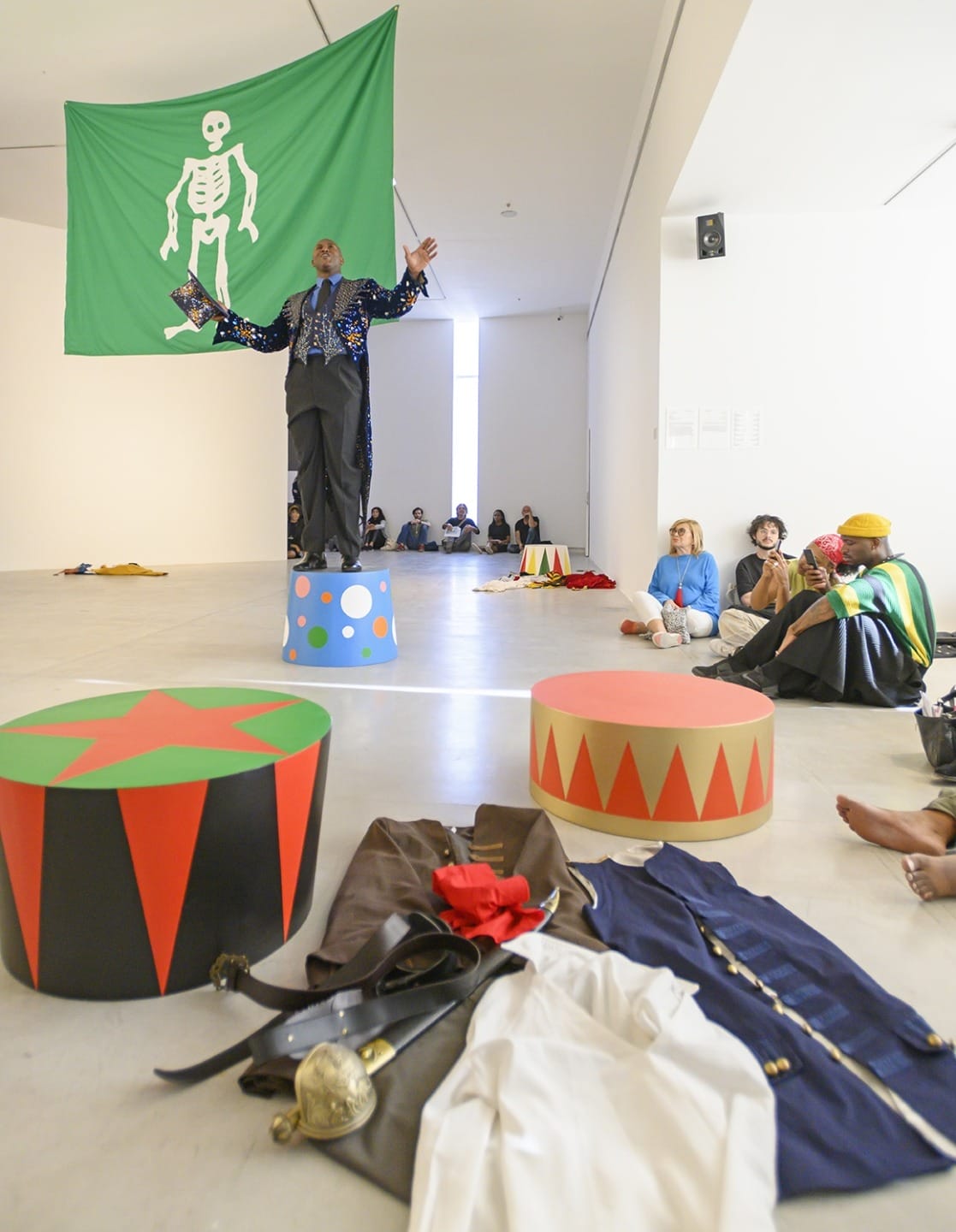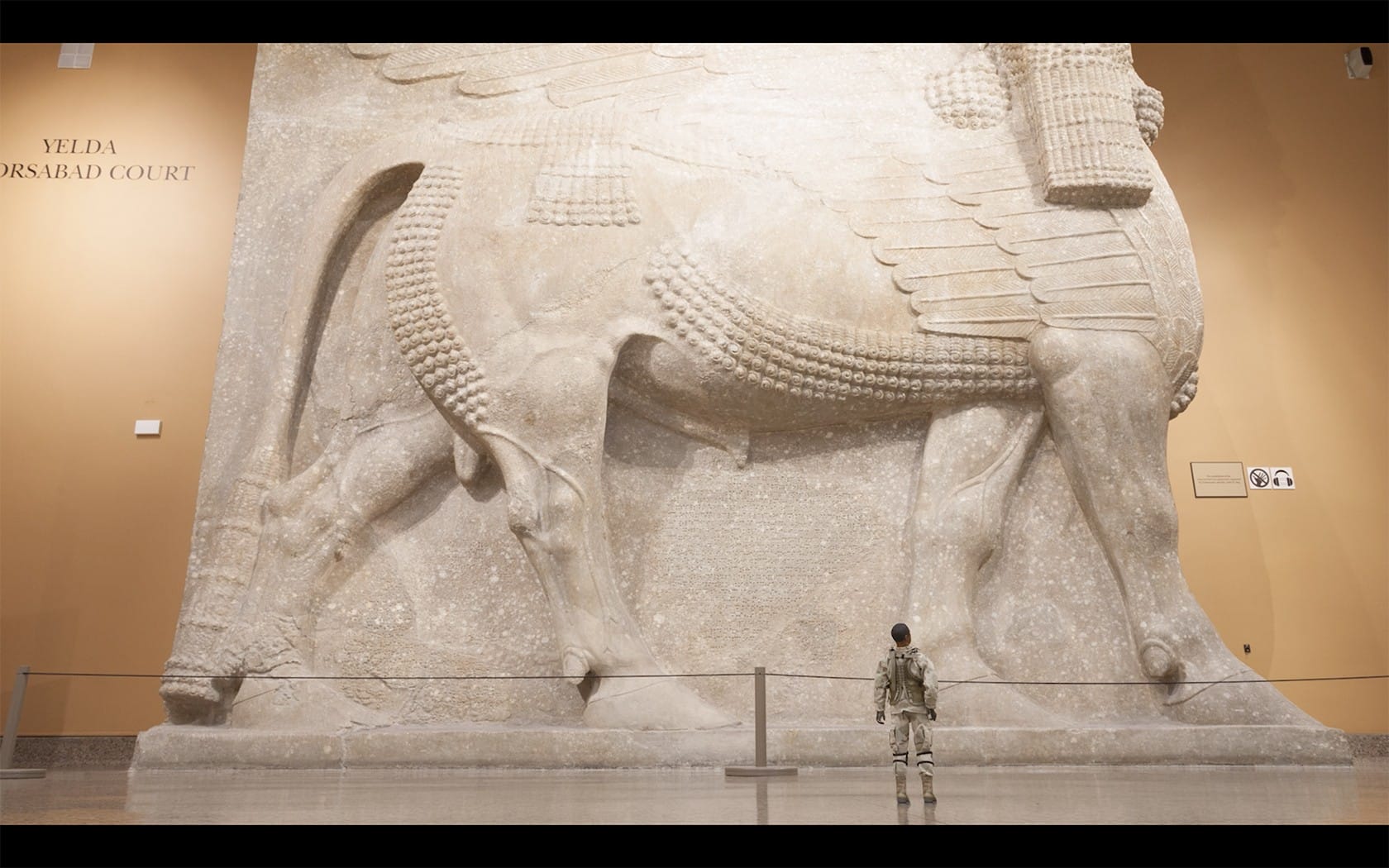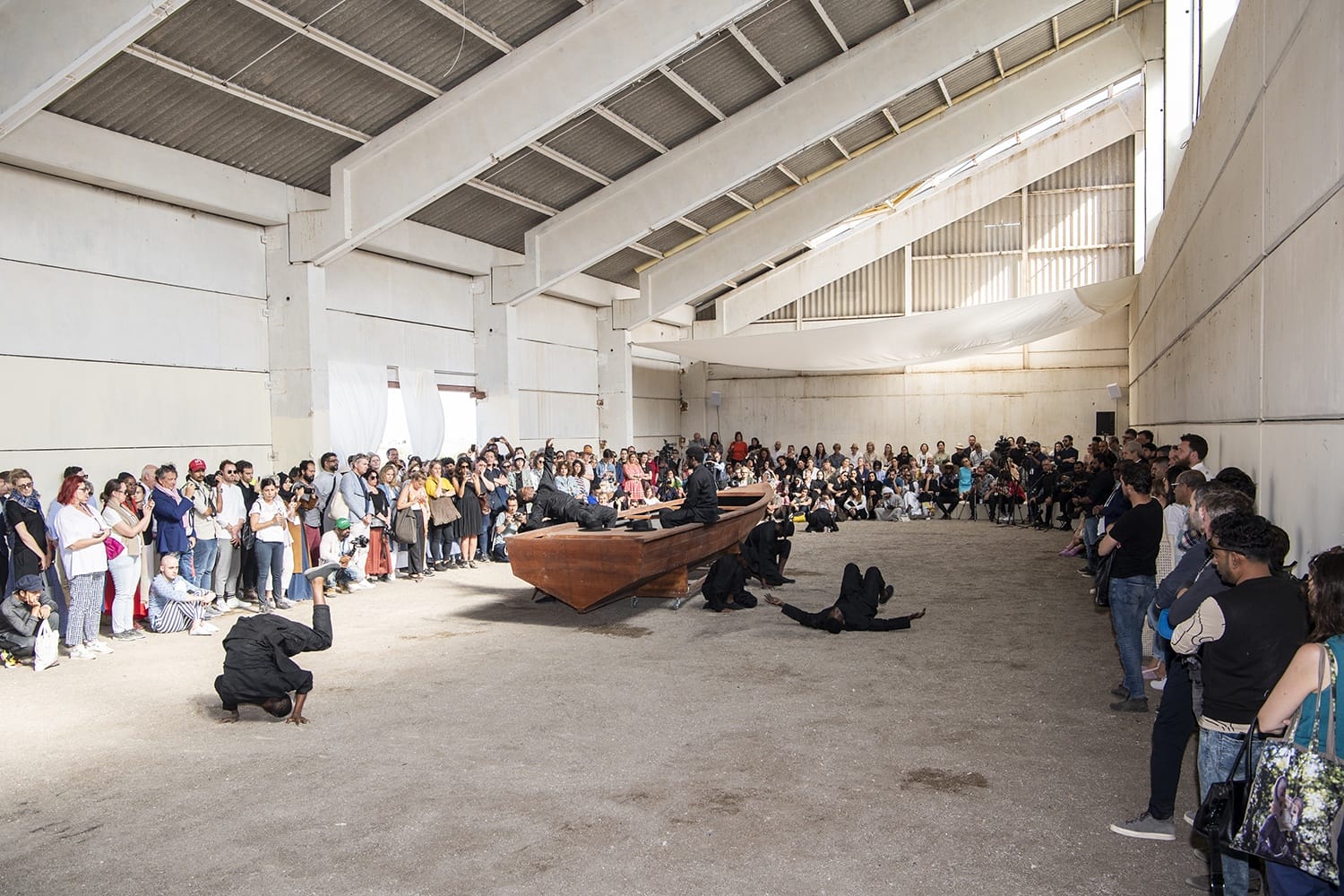Highlights from the 14th Sharjah Biennial
The international exhibition, which just opened, offers a broad range of artists to local and global visitors during its three-month run

The Sharjah Biennial has returned to the city of Sharjah with its 14th edition, drawing international art lovers to the third most populous city in the United Arab Emirates. The exhibition program, which kicked off on March 7, includes 80 international artists, 60 of whom are set to debut new commissions, accentuating Sharjah’s modest architectural texture with subtle interventions. Helmed by a trio of globally diverse curators—Claire Tancons, Zoe Butt, and Omar Kholeif—this year’s show, entitled “Leaving the Echo Chamber,” proposes methods of bending and “renegotiating,” entrapping cycles of data and stimuli surrounding the contemporary body. Adopting the echo chamber as a metaphor for confinement as well as a site of rebellion, each curator assumes their own platform through different critical perspectives and titles on resistance, multiplicity, reformation, and self-governance.

The Sharjah Art Foundation houses seamlessly woven presentations of three subexhibitions, placing works by artists such as Alfredo Jaar, Akram Zaatari, Candice Breitz, Wu Tsang, and Ann Veronica Janssens across the foundation’s individual galleries spread around a mazelike structure. Interconnected placement of works selected by all three curators taps into the biennial’s overall sentiment with a broad range of media, spanning unconventional materials such as micro water droplets or burned pita, utilized by artists to push the limits of artistic production, as witnessed in high-caliber biennials where space for experimentation is generous.
Recommended: Guggenheim Announces Exhibition of New Works by Simone Leigh
“This is an opportunity to engage with the community and enhance different parts of the state through performances and installations in and outside the city,” Sharjah Art Foundation president and founder Hoor Al Qasimi tells Galerie, emphasizing that many institutions, such as the Calligraphy Museum, have loaned their spaces for the exhibition.

Installation view: Sharjah Biennial 14, 2019. Commissioned by the Museum of Contemporary Art Chicago. Collection of Al Ma’mal Foundation for Contemporary Art / Contemporary Art Museum Palestine. Courtesy of Sharjah Art Foundation
Al Qasimi, the daughter of Sharjah’s ruler, Sheikh Sultan bin Muhammad Al Qasimi, and a member of the board of directors for MoMA PS1, also added that this iteration gave them the chance to revitalize abandoned sites they have been scouting across Sharjah for years. “In Arabic we say, ‘In every delay, there is a blessing,’ and I learned to be patient and use a site when the right time comes, such as the abandoned kindergarten in Kalba, where Mohamed Bourouissa installed a perfectly fitting installation this year.”
Recommended: Hôtel de Crillon Designer Chahan Minassian Opens New Paris Gallery
True to Al Qasimi’s remarks, the exhibition extends across the city and farther, unfolding at sites reserved for each curator’s selection of artists. Kholeif occupies the Sharjah Art Museum and its grounds for Making New Time, a platform where he examines the positioning of the body against visual and mental excess prompted by the digital. The London-based curator bridges a selection of portraiture-heavy paintings by artists of a former generation with cutting-edge experiments involving new media.

Seductively subliminal paintings from Turkish artist Semiha Berksoy, Lebanon’s Huguette Caland, or recent Turner Prize winner Lubaina Himid guide the viewers outside the museum, where New York artist Ian Cheng’s infinite live stimulation series, “Emissaries,” runs on a massive LED display in Arts Square. At the adjacent Bait Al Serkal, Swiss artist Pamela Rosenkranz’s Healer, a robotic snake residing in the building’s courtyard, yields serpentine marks on the sand based on the metallic animal’s algorithmic movements. The contrast between the tactility of the paintings and the virtuality of the works conceived through advanced technologies reflects our everyday experience of navigating the real and the digital realms.

The opening week included a series of performances aimed to activate works that curator Claire Tancons brought together for her section, Look for Me All Around You. Among the highlights was Cape Town–based artist Mohau Modisakeng’s theatrical performance Land of Zanj, held at a defunct ice factory by the Gulf of Oman in Kalba. Starting their choreography under the soaring ceilings of the factory, a group of dancers, accompanied by musicians playing the oud and the kanoon, Middle Eastern string instruments, proceeded toward the water in sequences, using as props a boat, a door, and pieces of furniture. The statement on the history of slave trading, which accompanied the work, made an impact on the audience, who followed the dancers through their journey into the water.